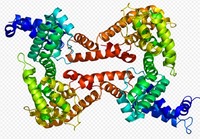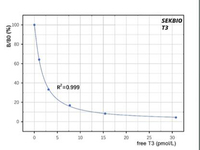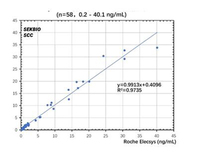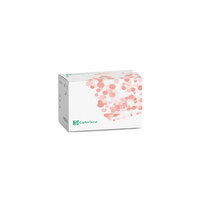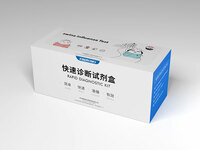Influenza (Flu)
Product Quick Detail
- Minimum Order
- 1
- Packaging
- N/A
- Delivery
- 15 Days
Specifications
Influenza virus is the representative species of the Orthomyxoviridae family. The typical clinical symptoms of these diseases are acute high fever, general pain, marked fatigue and respiratory
symptoms.
Influenza viruses are spread mainly through airborne droplets, contact between a susceptible person and an infected person, or contact with contaminated objects.
The General autumn-winter season is its high incidence period. Influenza A and B viruses mainly caused human influenza.
The rapid diagnosis of Flu is using the immunofluorescence method, ELISA method to detect virus antigen.
We usually take the patient's nasal mucosa or respiratory tract exfoliated epithelial cell smear and see the antigen by immunofluorescence staining with fluorescin-labelled influenza virus immune
serum. Or test the antigen in the patient's pharyngeal gargle by ELISA.
SEKBIO provides Mouse Flu A NP mAb, Mouse Flu B NP mAb, Flu A NP eukaryotic expression recombinant protein and Flu B NP eukaryotic expression recombinant protein for Influenza diagnosis.
Flu Antibody
Influenza viruses are divided into three types: A, B, and C. Influenza A virus can cause a worldwide pandemic. Influenza virus is a segmented single-stranded negative-stranded RNA virus. The
protein combined with nucleic acid is nucleoprotein (nucleoproteiN, NP). The NP antigen is stable and type-specific. Outside the virus, the core is the matrix protein (M protein) tightly bound to
the virus envelope, and the outermost is the virus envelope. There are two kinds of spines on the envelope; one is hemagglutinin (HA), the other is nerve Aidase (neuraminidase, NA), which are
easily mutated.
Serological methods for detecting antibodies include the hemagglutination inhibition test, complement fixation test, neutralization test, ELISA, etc., but the most commonly used is the
hemagglutination inhibition test.
Influenza Antigen
Influenza virus can cause infection and disease in humans, birds, pigs, horses, bats, and other animals and is the pathogen of human and animal diseases such as human influenza, avian influenza,
swine influenza, and equine influenza.
The typical clinical symptoms of these diseases are acute high fever, generalized pain, marked fatigue, and respiratory symptoms. Influenza viruses are mainly spread through airborne droplets,
contact between susceptible and infected persons, or contaminated items. Generally, autumn and winter are the high incidence period. Human influenza is mainly caused by influenza A and B viruses.
Direct and indirect immunofluorescence, radioimmunoassay, ELISA, immunoelectron microscopy, etc., to detect antigens quickly, but indirect immunofluorescence and ELISA are the most commonly used.
In addition, the PCR method and nucleic acid hybridization method can also use to check nucleic acid.
As a professional tumor marker factory, SEKBIO has high-quality bone marker for sale. Welcome to contact us if needed.
- Country: China (Mainland)
- Business Type:
- Market:
- Founded Year:
- Address:B503, Building 1, Phase II, Yinxing Science and Technology Park, Guanlan, Shenzhen, China
- Contact:sekbio .com
Other products from Shenzhen SEKBIO Co., Ltd
Relate products of Influenza (Flu)
Diagnostic Kit for Seasonal Influenza Virus H1 Subtype (PCR-Fluorescence Probing)
Based on one-step real-time influenza a h1 pcr technology, the seasonal influenze test kit selects the highly conserved region of IV H1 subtype gene coding region as the target, designs specific primers and fluorescent probes, and performs one-step RT-PCR amplification for ...
Swine Influenza Antigen Rapid Test
This product is used for qualitative detection of African swine fever virus (ASFV) antigen in diseased pig blood in vitro. African Swine Fever (ASF) is caused by the ASF virus infecting domestic pigs and various wild boars (African wild boar, European wild boar) Pigs, etc.) ...


